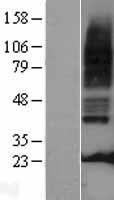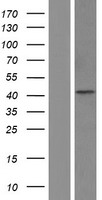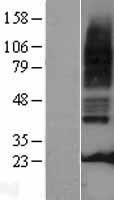order histories, retained contact details for faster checkout, review submissions, and special promotions.
Forgot password?
order histories, retained contact details for faster checkout, review submissions, and special promotions.
Locations
Orders Processing,
Shipping & Receiving,
Warehouse
2 Shaker Rd Suites
B001/B101
Shirley, MA 01464
Production Lab
Floor 6, Suite 620
20700 44th Avenue W
Lynnwood, WA 98036
Telephone Numbers
Tel: +1 (206) 374-1102
Fax: +1 (206) 577-4565
Contact Us
Additional Contact Details
order histories, retained contact details for faster checkout, review submissions, and special promotions.
Forgot password?
order histories, retained contact details for faster checkout, review submissions, and special promotions.
HTR3A / 5-HT3A Receptor
5-hydroxytryptamine (serotonin) receptor 3A, ionotropic
HTR3A / 5-HT3A Receptor belongs to the ligand-gated ion channel receptor superfamily. This gene encodes subunit A of the type 3 receptor for 5-hydroxytryptamine (serotonin), a biogenic hormone that functions as a neurotransmitter, a hormone, and a mitogen. This receptor causes fast, depolarizing responses in neurons after activation. It appears that the heteromeric combination of A and B subunits is necessary to provide the full functional features of this receptor, since either subunit alone results in receptors with very low conductance and response amplitude. Alternatively spliced transcript variants encoding different isoforms have been identified.
| Gene Name: | 5-hydroxytryptamine (serotonin) receptor 3A, ionotropic |
| Family/Subfamily: | Ion channel , Serotonin 5-HT3 receptor |
| Synonyms: | HTR3A, 5-HT3-A, 5-HT3R-A, 5-HT3 receptor, 5HT3 serotonin receptor, 5-HT3A, 5-HT3a receptor, 5-hydroxytryptamine receptor 3, 5-HT-3, 5-HT3, 5-HT3R, 5HT3R, HTR3, Serotonin receptor 3A |
| Target Sequences: | NM_000869 NP_000860.2 P46098 |
Publications (1)






If you do not find the reagent or information you require, please contact Customer.Support@LSBio.com to inquire about additional products in development.









